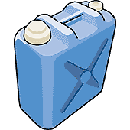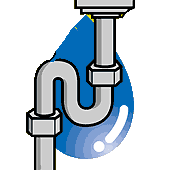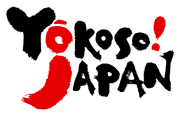J&F PLAZA - SECURITY PRECAUTIONS
 |
|
1. Crime Prevention |
|
| Crimes that tend to occur frequently in multi-household complexes include
burglaries while the occupants are out, and sexual assault. You should
pay special attention to the following: |
|
| Lock up securely, and make use of the peephole and door chain. |
|
| Make a habit of keeping closely in touch with your neighbors, let them
know when you are going to be away, and so on. |
|
| At night, women and children should avoid using the elevators alone. |
|
| Be particularly alert if you see a stranger on the premises. |
|
2. Fires |
|
| (1)Daily precautions | |
| To prevent fires, be careful of the following: Do not smoke in bed. Extinguish all flames before leaving the kitchen. Be careful about heating an empty bathtub. Do not place any combustibles near the gas range (stove). |
|
| The hatch and dividing partitions on the balcony serve as an emergency
evacuation exit. Never leave objects close to a hatch or partition. |
|
| Make sure you know in advance where the fire extinguishers and water
buckets are located. It is also advisable to equip your own unit with
a fire extinguisher, etc. |
|
| To prevent fires, the use of curtains with the boen (flame-retardant) label
is recommended. In high-rise buildings, above a height of 31 meters (that
is, from about the 11th floor up) be sure to use only curtains that have
the flame-retardant label. |
|
| (2) Fire extinguishing procedures | |
| Small fires can be extinguished by covering them with a wet towel, or
covering them with a Futon or blanket and then pouring water on it. |
|
| Fire extinguishers are handled as follows (aiming the spray at the fires
source is more effective than trying to spread the burst over the general
area of flames) 1. Pull the stopper off 2. Direct the nozzle at the fire 3. Squeeze the lever |
|
| If a fire breaks out nearby, close your doors and windows to keep out
smoke and flames, then dial 119 immediately. |
|
| Because smoke (caused by fires) rises, escape in a low position, putting
a wet towel or handkerchief to your mouth. Breathe through the wet towel
or handkerchief to avoid inhaling the smoke. |
|
| If you are responsible for causing a fire, you may be subject to claims for restoration costs or compensation for damages, may be required to vacate your unit. At this time if you have purchased Tenant Insurance you may use it to cover the claims against you. For more details see 「Insurance」at the end of this manual. | |
 |
3. Earthquakes |
If an earthquake occurs, do not rush out to the corridor or stairs. Rushing out in a panic is dangerous. Remain calm, and turn off all gas lines immediately. If a fire breaks out, extinguish it. |
|
Turn off the gas range at the main source, also turn off all oil-heater, electric fittings, etc. |
|
| When you look for shelter avoid brick walls and narrow alleys, also use
futons or other padded materials to protect your head and body. |
|
(1) Emergency supplies |
|
| Keep on hand an emergency supply of drinking water, food, medicine, disaster-prevention
articles, etc. Drinking water - At least 3L a day per person is needed. Prepare for 3 days. Food - Rice as staple diet, canned food and ration pouches as side dish Fuel - desktop gas ranges, spare gas cylinders ,and solid fuels, etc... Light - flashlight, spare batteries. Tools - saw, crowbar, rope, carpenter's kit, etc. Others - blanket, work glove, a cart (to carry baggage), bicycle, dry shampoo, etc. |
|
| (2) A List of goods to take when travelling during an emergency | |
| Prepare the following in a backpack Food - Water, hardtacks, ration pouches, cans and knife First-aid kit - medicine, hood, cap Valuables - cash, signet, bankbook, ID (passport, Foreign Resident Registration Card) Clothing - underwear, sleeping bag, rainwear, towel Commodities - radio, flashlight, spare batteries, work glove, rope, matches or lighters, body warmers, thermal mask, sanitary napkins, disposable, diapers, tissues, wet tissues, plastic wrap, stationery, trash bag Others - shoes with thick soles, slippers, whistle, dentures |
|
| (3) To prevent furniture from falling during an earthquake | |
| Most injuries that occur during earthquakes are caused by furnishings
and appliances falling over. Even if a building itself is ok, there are
many people who are crushed under heavy appliances and furnishings: refrigerators,
large bookshelves, cabinets, etc. It is important to fix interior furniture
to be as secure as possible. |
|
| Although fixing furniture to the wall with screws is common, you might
be prohibited to put holes in the wall because of the lease. The followings
are some ways to avoid damaging both furniture and walls. |
|
| 1. Prop You can buy props at furnishing shops, volume sale's shops, and discount store. Fix them to the ceiling and furniture. Especially be careful about fridges because they are movable with casters. Also, another way is to stuff a box in the gap between the ceiling and furniture. Ceiling boxes are often better than props because a box has a wider area to distribute force. Choose a strong cardboard box. |
|
| 2. Board Lay a board under the front of furniture. It will transfer the center of gravity towards the back and lessen the risk of furniture falling forward. |
|
| 3.To prevent shelves from flying out There are times during earthquakes when shelves can fly out of furniture which contains shelves. It is not only dangerous, but can also cause the furniture to fall forward because its center of gravity transfers forward. Therefore, fix the doors of furniture containing shelves with a stopper. There are stoppers with suction cups for glass doors and stoppers to tape knobs. |
|
| 4. Reinforcement of other appliances It is very dangerous if lights, wall clocks, picture frame, etc. fall down. Reinforce them by chains or metal fittings, and be careful about the locations where you hang them (over your bed, for instance, can be dangerous). |
|
 |
4. Leaks |
If water leakes through to the unit below your apartment, you will be required to pay compensation for any damage incurred, not only to the owners but also to the tenants who are affected. |
|
| Concrete is quite permeable to water. Even a small amount of water can
seep through the ceiling or drip down to units below. The bathroom floor
is the only floor in your unit that has been completely waterproofed.
Do not pour water over the floors to wash them; this applies not only
to the living areas but also to the entrance hall, toilet, balcony, corridor, etc. |
|
5. Fall prevention |
|
| A table or other object placed near a railing may enable a child to
climb over and thus lead to a fall. Remember not to place such objects
near railings. |
|
6. Housing insurance |
|
| Housing insurance refers to: "home fire insurance", "general housing insurance", and "tenant insurance". |
|
| Usually, you will be required to purchase insurance when making a lease
contract. The following is a description of the various types of insurance
you may be asked to purchase. |
|
| Home fire insurance - This covers any damage to the building caused by
fire. |
|
| General housing insurance - This covers damage to household effects caused
by fire, thunderbolt, explosion, leak, robbery, etc. |
|
| Tenant insurance - This covers damage caused by the tenant, that was
due to negligence on the part of the tenant (ex-fires caused by cigarettes,
candles, water damage from a leaking washing machine, etc.) If the general
housing insurance you enter doesn't guarantee damage cased by the tenant,
you can add tenant insurance as well to your contract. |
|
| Regardless of the type of insurance you purchase be sure to confirm what
the insurance is for and who will pay for it. |
|








